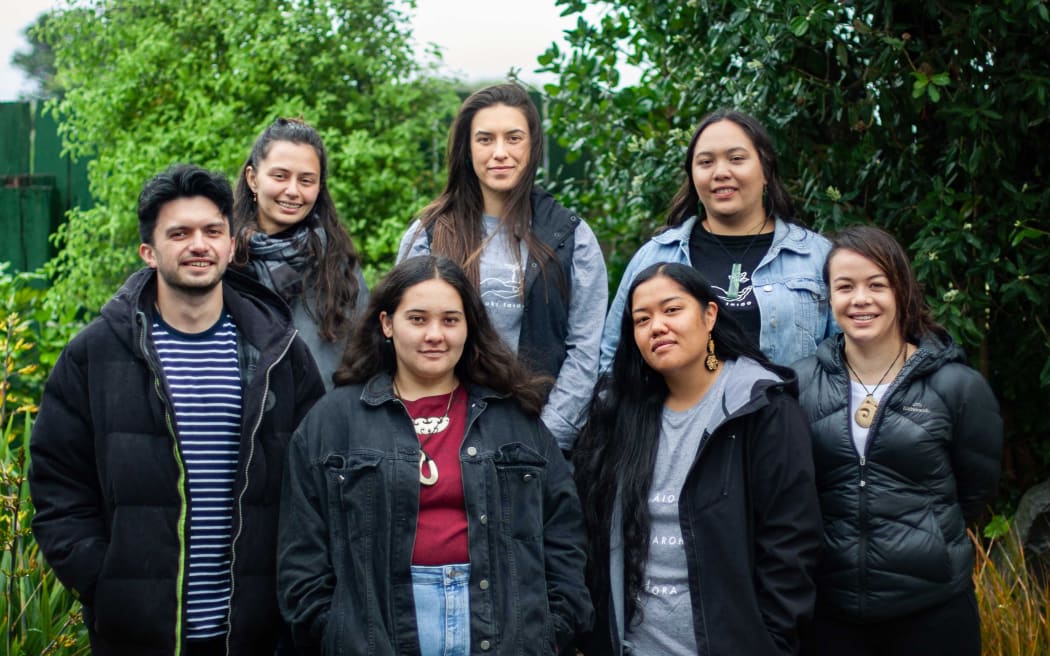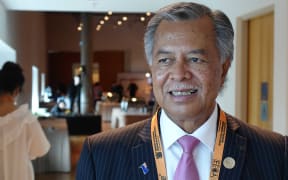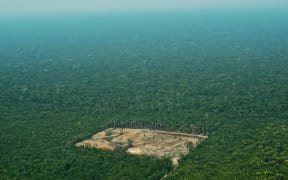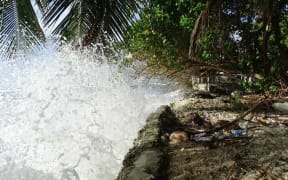A group of Māori and Pasifika will be the only indigenous youth delegation at the UN climate conference next month.

Top row (L-R): India Logan-Riley, Nakia Randle, Nevada Huaki-Foote Bottom row (L-R): Kaeden Watts, Kahu Kutia, Hana Teipo, Annie Te One Photo: Trinity Thompson-Browne
The group of seven have been busy fundraising and preparing for the intensive two-week climate talks held in Poland this year.
India Logan-Riley (Ngāti Kahungunu ki Ngāti Hawea ki Whatuiapiti) is the head delegate for the ropu and a climate conference veteran.
This trip marks her fourth climate conference so her role has been to prepare the group on climate policy and what to expect.
The group is focused on ensuring there is an official indigenous voice entrenched in the Paris Agreement.
"There's already an indigenous platform named in the agreement - it's just about us locking into place what that actually looks like and how much sovereignty we get within that space.
"It's hard because inherently the UN wasn't built to uplift indigenous voices and so it's very much being alert enough all the time to catch those opportunities where we can speak to our own power, whilst also using that opportunity to better communicate with our communities back home about what's going on around climate change."
She says representing indigenous youth around the world is "a huge honour".
"It's unusual that it would be a bunch of young Māori from the bottom of the Pacific [but] we also get to hold space for other indigenous youth who come but are coming with other delegations that aren't just for indigenous people.
"So that's really awesome to hold culture and space for them."
But it hasn't been easy for the group to have a seat at the table, with 5000 fewer spots for civil society this year, Ms Logan-Riley said.
"Governments take over huge teams sometimes, up to 400 members in a negotiating team...and then the rest of us in civil society have to figure out how we're going to get there on our own with no governmental support."
"It's definitely a fighting for space situation within the particular climate negotiations that take place. There is very little resource and funding and you have to get passes to be able to get in as well and those are a high commodity, they're hard to get a hold of.
"That has been a fight every single year."
The issue of climate change is a personal one, with Ms Logan-Riley learning at the Paris climate talks that her home in Haumoana, in the Hawke's Bay, was directly threatened.
"That was the climate talk where I learned that my community would be underwater within the next 30 - 50 years. So we need to know how we're going to migrate in a way that still upholds our culture and connect to a land that is no longer there."
The group has to raise around $30,000 to get to Poland and with three weeks out, are only a third of the way towards their goal.





